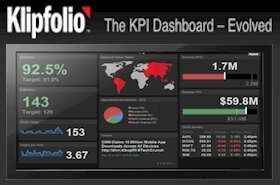Almost universally, rapid application development and deployment is arguably the most important cornerstone of small businesses and enterprise departments that must innovate when it comes to information processing. And with iOS devices flooding the business topography across the globe, rapid app development is becoming central to many database projects.
FileMaker Pro is a database application development environment that makes it simple and straightforward for technical and non-technical business experts to create seamless Windows, Mac, and iOS solutions. But there’s one thing about it that users get excited about when nudged to say more about this radically simple approach to running circles around your IT guys and gals. It’s the magic.
When I first heard this term last summer at the Filemaker Developer’s Conference, it struck me not only as an accurate depiction of the results attainable with FileMaker, but I thought it might be a reflective nuance of Apple’s founder, Steve Jobs, who had a penchant for describing his new products as “magical”.
I jumped to this premature juxtaposition because FileMaker Inc. is a wholly owned subsidiary of Apple (Nasdaq:AAPL) – the connection seemed obvious and logical. But use of the term in the FileMaker developer community is pure coincidence; FileMaker developers have thought of this product as magically powerful for more than a decade, and long before Steve used the term when unveiling the company’s newest Apple products.
FileMaker is indeed a form of magic; it provides business people, hard core database managers, and software engineers with a powerful approach for crafting and deploying business applications in record time. If anything about FileMaker is synonymous with Apple hardware products, it’s that the applications just work. But this is a fundamental requirement for FileMaker, for whithout the ability to provide non-technical business people with a methodology for creating bullet-proof solutions, the idea would have fizzled out long before the DOT COM bubble started to expand.

As evidenced by the example shown above, the magic is certainly there. I use it to create vibrant and surprisingly stupid-simple business intelligence dashboards. FileMaker can help you create highly useful business applications in hours and days, not weeks and months. And a massive library of templates, built with resources that can be easily modified, help to speed the process of configuration for more complex relational database challenges.
And there’s FileMaker Go, a rapid deployment app for iOS. A few seconds after creating your first business solution, you can have it running on iPad, iPhone, and iPod Touch. Magically agile is the best way to describe any software system that can pull rabbits so effortlessly from a hat full of possibilities – it’s truly a mobile-first weapon. As one attendee explains…
“I haven’t found another platform where a complete data driven application can be written in a few hours and put on the web or deployed and operational an iOS device a few minutes. And I don’t think I’ll ever find another one. It’s the perfect database package for small business people who want to move fast and remain one step ahead of their competitors with their business data.”
XCode vs Getting Shit Done
In the mobile application development world, XCode is a very powerful and extremely precise in terms of its access to iOS features and hardware primitives. It is the go-to language for building the most ideal features and user experiences for enterprise mobile workers. Not surprisingly, because of its deep relationship with iOS, it has some advantages over FileMaker Pro and Go. With XCode, the likelihood you’ll hit a development ceiling for business solutions is extremely low.
Think of XCode as a set of tools you might use to handcraft every aspect of a mobile app. Metaphorically, these would be spoons, small shovels, and straight edges if you were building say, a sand castle. It takes a long time to sculpt a sand castle with small instruments, but if the app requires such precision, XCode is probably the right vehicle.
In the business world, data-centric apps certainly require precision handling of information. But business processes that capture and display data, must rely on heavy machinery, especially if one of the success factors is a shortened time-to-deployment. In contrast to a custom app built in XCode, the typical FileMaker solution requires just a fraction of the time and effort to get up and running. And when I say “fraction”, I mean typically a miniscule fraction – like in the single digit percentile of an XCode project.
And even with a very small degree of effort, FileMaker’s architecture and approach allows you to build a single solution that runs on Mac, Windows, and iOS. Your business solutions will instantly run on a Windows desktop, a Macbook Pro, and an iPad – all within the instant you click save.
Magic.



















